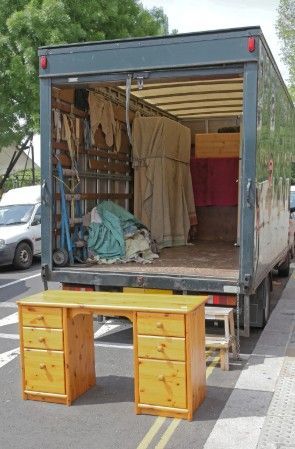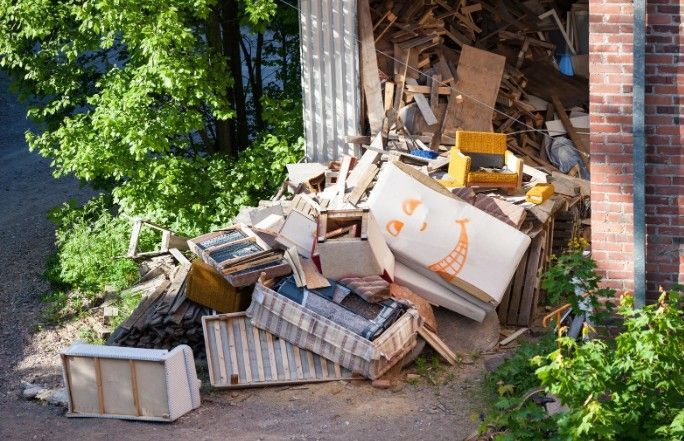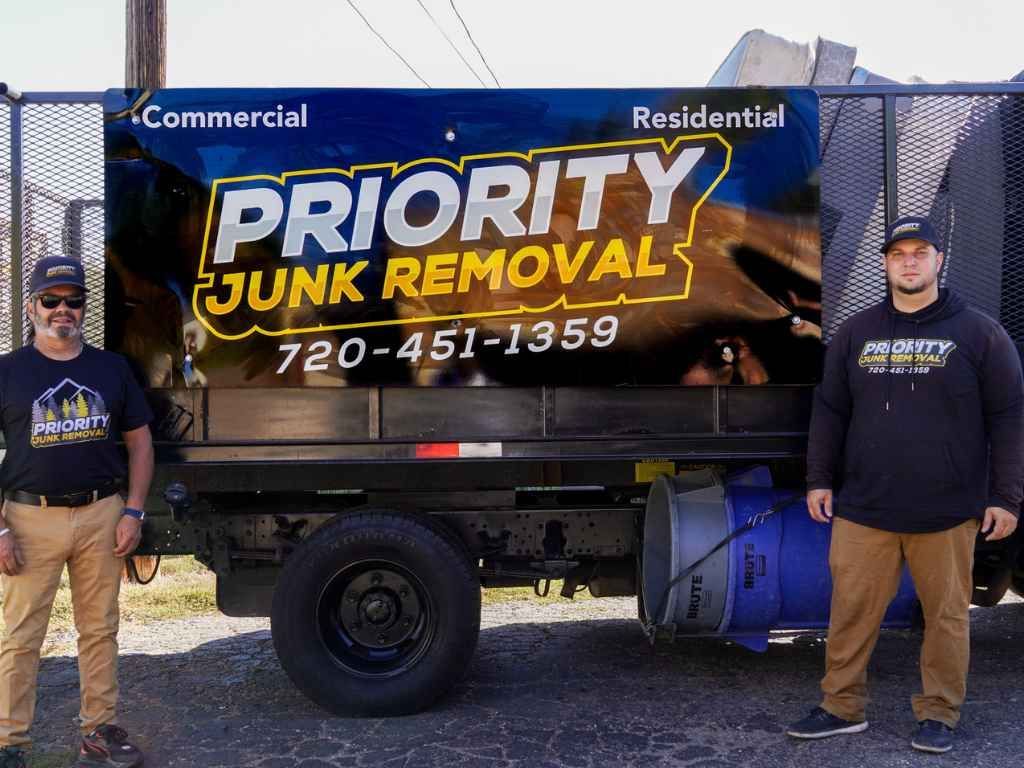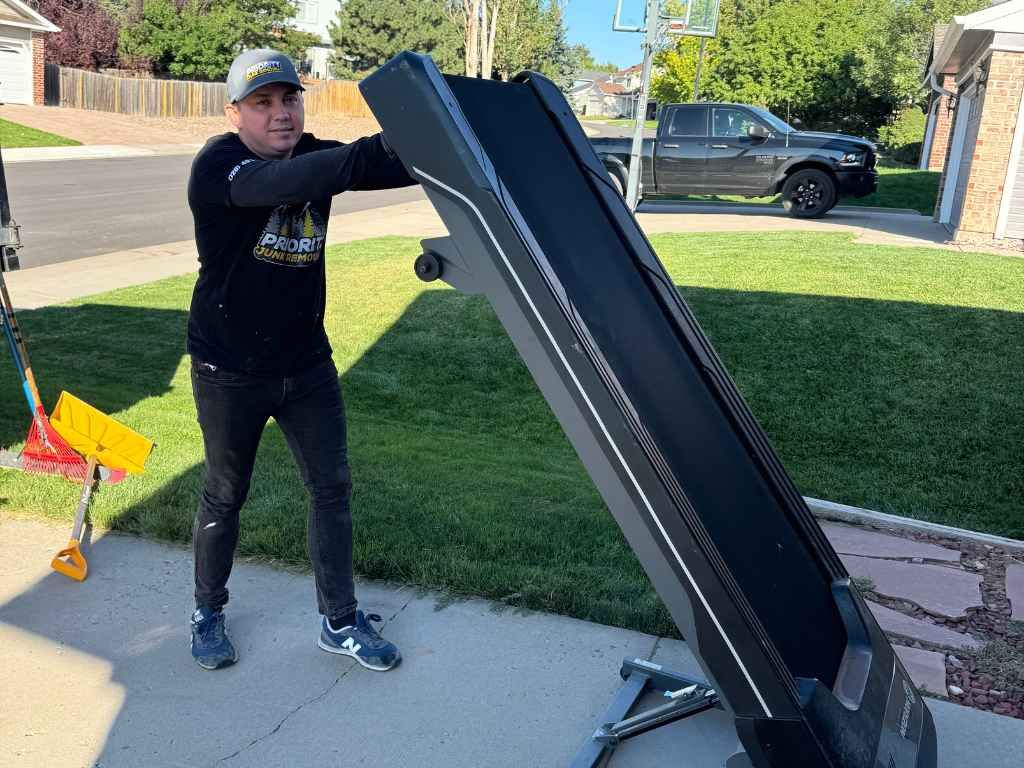Managing Office Junk: Best Practices for Commercial Spaces
teams expand, the clutter accumulates. Unused office furniture, outdated electronics, stacks of paperwork—these remnants of daily operations can hinder efficiency and create an unprofessional environment. Implementing best practices for commercial junk management ensures that workspaces remain organized, safe, and conducive to productivity.
Understanding Office Junk Accumulation
A workspace may appear tidy on the surface, but behind closed doors, storage rooms often tell a different story. Office junk builds up in various forms—discarded computer equipment, obsolete office supplies, and even broken chairs that no one wants to deal with. The problem is rarely intentional. Businesses prioritize growth, client service, and operations, leaving junk management on the back burner until it becomes unavoidable.
The accumulation of unnecessary items can impact workflow and employee well-being. A cluttered office often means lost productivity, as employees waste time navigating crowded spaces or searching for essential documents buried under piles of old files. Moreover, excess junk poses safety risks, increasing the likelihood of workplace accidents. That’s why a proactive approach to office junk removal is essential.
How Junk Removal Services Save Businesses Time and Money
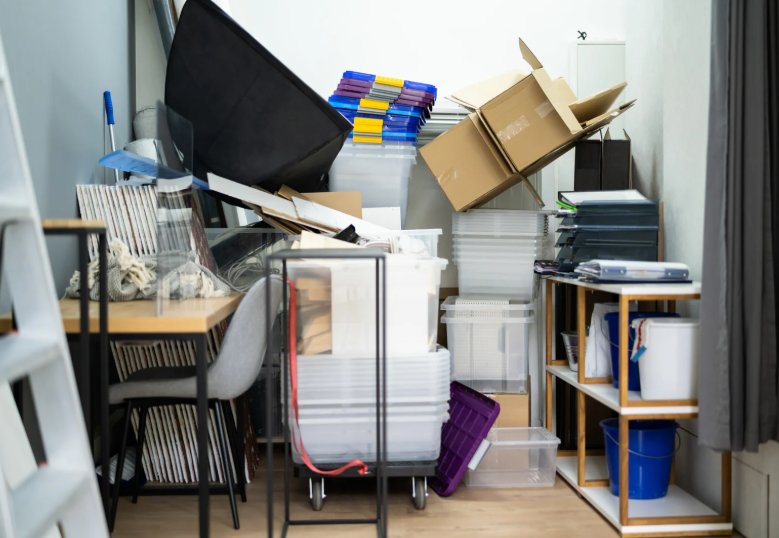
Handling office junk removal in-house can be a time-consuming and costly endeavor. Employees who are pulled away from their regular tasks to sort, move, and dispose of office clutter are spending valuable work hours on non-essential duties. Without the proper equipment or disposal knowledge, businesses may also struggle with handling bulky items, electronic waste, or hazardous materials, leading to potential compliance issues or safety risks. This is where professional junk removal services make a difference.
By outsourcing office junk removal, businesses free up their staff to focus on core responsibilities. Professional services handle everything from lifting and hauling to sorting and eco-friendly disposal, ensuring that office spaces are cleared efficiently. Investing in professional junk removal saves time, prevents unnecessary labor costs, and guarantees that all waste is managed in compliance with local regulations.
The Role of Employee Participation in Keeping Offices Clutter-Free
A junk-free office isn’t solely the responsibility of management—it requires a team effort. When employees take ownership of their workspace organization, the entire office benefits. Encouraging staff to keep their desks tidy, properly dispose of unused items, and participate in regular cleanouts fosters a culture of accountability. Small daily habits, such as clearing unnecessary paperwork or keeping common areas organized, go a long way in maintaining an efficient workspace.
Businesses can also introduce office-wide decluttering initiatives to make junk management a collaborative effort. Organizing cleanup challenges, offering incentives for the tidiest workstations, or designating an office organization committee can help keep junk under control.
Best Practices for Managing Office Junk in Commercial Spaces
Conduct Regular Office Audits
The first step to managing office junk is identifying what is necessary and what is not. Conducting periodic audits allows businesses to take stock of office items and determine which assets are still functional. Office managers should schedule monthly or quarterly reviews of workspaces, including storage areas, common rooms, and even employee desks. During these audits, categorize office items into four groups: essential, reusable, recyclable, and disposable. Essential items remain in use, while reusable ones—such as excess chairs or printers—can be stored or donated.
Implement a Paper-Free System
Despite advancements in digital technology, many offices still struggle with excessive paper waste. From old invoices to outdated manuals, paper piles up quickly, creating a mess that is difficult to manage. Transitioning to a paper-free system significantly reduces clutter. Businesses should encourage employees to digitize documents and use cloud storage solutions for file management.
Shredding and recycling outdated paper documents also play a crucial role in decluttering. Sensitive documents must be disposed of securely, ensuring confidential information does not end up in the wrong hands.
Optimize Storage Spaces
Inefficient storage is a common reason why junk accumulates in commercial spaces. Many offices have storage rooms filled with unused equipment, broken furniture, and outdated technology. Instead of letting these items take up valuable space, businesses should optimize storage by using shelving units, labeled bins, and filing systems.
Investing in multi-functional office furniture with built-in storage can also help reduce clutter. Desks with drawers, cabinets with sliding compartments, and wall-mounted shelving maximize space without making the office feel overcrowded.
Responsibly Dispose of E-Waste
Electronic waste, or e-waste, is one of the biggest contributors to office junk. Computers, monitors, printers, and phones become obsolete as technology advances. However, improperly disposing of e-waste can harm the environment, as these items often contain hazardous materials. To manage e-waste responsibly, businesses should work with certified recycling companies that specialize in electronic disposal. Many organizations also offer trade-in programs for old electronics, providing businesses with discounts on new purchases in exchange for outdated devices.
Establish a Junk Removal Schedule
One-time cleanouts are effective, but without a long-term plan, junk will accumulate again. Establishing a routine junk removal schedule prevents clutter from spiraling out of control. Whether it's a monthly cleanup day or an annual deep clean, consistent maintenance ensures that unwanted items do not pile up. Companies can assign a team or hire a professional junk removal service to handle this process. By making decluttering a regular business practice, organizations foster a culture of organization and responsibility among employees.
How a Clutter-Free Office Boosts Productivity and Morale
A cluttered workspace creates unnecessary distractions, making it difficult for employees to focus on their tasks. When desks are piled with paperwork, and common areas are filled with old office supplies, workers often waste valuable time searching for what they need. The presence of excess junk contributes to mental fatigue, reducing efficiency and increasing frustration. An organized, junk-free office, on the other hand, promotes a sense of clarity and order, helping employees stay focused and motivated throughout the day.
Beyond productivity, a clean office environment also improves employee morale. No one enjoys working in a chaotic, messy space. A well-organized office fosters a sense of professionalism and pride in the workplace. Employees are more likely to feel valued and engaged when they see that their workspace is maintained with care. A junk-free office signals to workers that their comfort and efficiency matter, ultimately leading to higher job satisfaction and better team collaboration.
The Hidden Dangers of Ignoring Office Junk Removal
Leaving office junk unchecked isn’t just an aesthetic issue—it poses significant risks to workplace safety and health. Stacks of paper, broken furniture, and old electronics can become fire hazards, increasing the risk of accidents. Cluttered hallways and storage areas can obstruct emergency exits, making it harder for employees to evacuate in case of an emergency. Additionally, excessive junk collects dust, mold, and pests, creating an unhealthy environment that can trigger allergies and respiratory issues among employees.
Beyond physical hazards, an unmanaged office clutter problem can also affect business operations. Important documents may be misplaced, leading to inefficiencies or compliance issues. Electrical equipment left unused but still plugged in can contribute to unnecessary energy consumption, increasing utility costs. Businesses that neglect office junk removal not only put their employees at risk but also create operational setbacks that can cost them time and money. Taking action sooner rather than later is essential.
How to Create an Effective Office Junk Removal Plan
A successful office junk removal plan starts with a clear strategy that addresses both short-term cleanouts and long-term maintenance. Businesses should designate specific team members to oversee office organization, ensuring that junk doesn’t accumulate unnoticed. Conducting a thorough audit of the workspace allows employees to identify what items are essential, what can be repurposed, and what should be discarded. Setting clear policies on document storage, equipment use, and disposal helps maintain a clutter-free environment year-round.
Regular decluttering sessions, scheduled on a monthly or quarterly basis, prevent junk buildup from getting out of hand. Businesses should also establish relationships with professional junk removal services to streamline the disposal of large or hazardous items. Whether it’s recycling electronics, donating furniture, or securely shredding old paperwork, a structured junk removal plan keeps offices organized, efficient, and free from unnecessary distractions. Proactive junk management contributes to a healthier, more productive work environment.
Professional Junk Removal is the Best Solution
While implementing these best practices can help manage office junk, some tasks require professional intervention. Large-scale cleanouts, hazardous waste disposal, and heavy furniture removal are best handled by experts with the right equipment and knowledge. Professional junk removal services offer efficiency, convenience, and safety. They ensure that office junk is disposed of in an environmentally responsible manner, adhering to local regulations.
Additionally, hiring a junk removal service saves businesses time and effort, allowing employees to focus on their core responsibilities without disruption. Outsourcing junk removal also eliminates the burden of handling bulk waste, particularly during office renovations, relocations, or major decluttering projects. Instead of struggling with logistics, businesses can rely on professionals to efficiently clear out unwanted items.
Conclusion
Maintaining a clutter-free office is crucial for productivity, safety, and a professional atmosphere. By conducting regular audits, digitizing documents, optimizing storage, responsibly handling e-waste, and adhering to a junk removal schedule, businesses can stay ahead of office clutter. Encouraging employee participation and repurposing unwanted items further enhances office organization efforts. For businesses seeking a reliable solution to office junk removal, professional services provide a seamless and effective way to clear out commercial spaces. Priority Junk Removal specializes in handling office cleanouts, ensuring workspaces remain clean, organized, and functional.
For expert junk removal assistance, contact Priority Junk Removal at 6091 South Spotswood Street, Littleton, Colorado 80120, United States. Reach out via phone at 720-451-1359 or email priorityjunkremoval@gmail.com for professional service tailored to your business needs.

